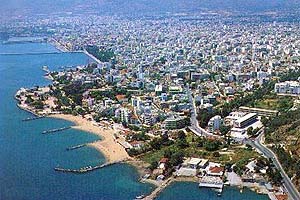The ESRA 2006 Conference is being organised in cooperation with the University of Thessaly Department of Early Childhood Education, the Volos Municipal Centre for Historical Research and Documentation (DIKI) and the Greek Society of Clinical Social Research. It will take place in Volos, Greece from Thursday 2nd March to Sunday 5th March 2006.
Conference theme
|
We live in a world where social structures and social relations are undergoing continuous change in both private and public spheres of life. Both individuals and collectivities can no longer rely on certainties acquired through traditional knowledge and experience, and ideas of lifelong learning, reflexivity and biographicity come to the fore. It is imperative to explore this changing reality in different sectors of life in order to understand our location in this new epoch. The life history and/or biographical approach is a suitable methodology for understanding these matters.
The 2006 Conference will explore the implications of story telling, biographical, auto/biographical and life history research in relation to learning –defined very broadly– and notions of transitional space and transitional processes. The way we used to think of and understand learning and such spaces as education, community, social politics, work, family, health, and, for that matter, research, needs to be reconsidered, reanalyzed and re-theorized. Consequently, processes and understanding may need to change in a wide range of spheres, from the social and the political to the institutional, clinical and empirical. In some of these spheres new processes are already emerging. We would like to encourage participants to write about their experience in such situations.
We welcome both theoretically driven as well as empirical papers from different disciplines in the humanities and social sciences as well as from education and adult education.
Conference Sub-themes
- Education and Learning: lifelong learning, democracy and education, adult and children’s education, teacher training.
- Identities and Selves: the dialogical self, the narrated and narrating self, the self and the other.
- Social and political spaces and processes of globalization: from above, from below and in-between.
- Transitions and transformations of the local, regional, national, global economic and social structures.
- Community and exclusion: migration and belonging, dialogue and narration, poverty, borders and boundaries, ethnicity, gender, travel.
- Labour relations and employment spaces: changes in work concepts and processes, technology and virtual work communities, work ethics.
- The politics of war and terrorism: the nation and the nation-state, violence and cultural fear, religion.
- Artistic spaces and processes: music, literature, theatre, performance, visual arts and architecture.
- Health and healing: new therapeutic relations in the clinical practice, individual and group therapy, alternative medicine, family.
- Research as a transitional space.
